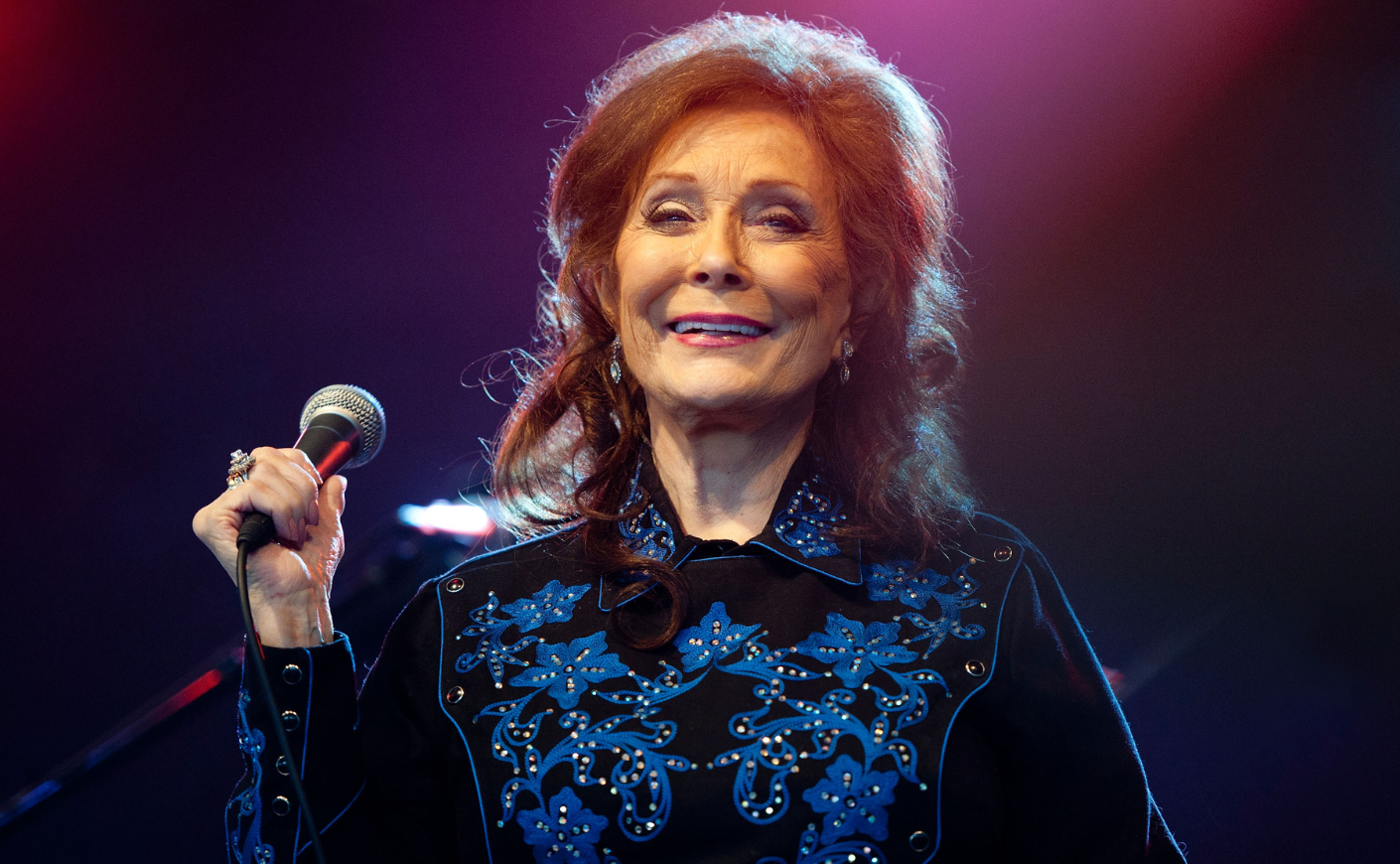Country music icon Loretta Lynn was a once-in-a-generation star, and she left behind a cultural hole it'll be impossible to fill when she died at 90 years old in October 2022. But as is the case anytime we lose an entertainer this great, there's at least one silver lining — the fact that we can forever honor Lynn's legacy through the unforgettable work she created during her time on Earth.
Her story began in the coal country of Kentucky, and after she was married at 15 and became a mother at 16, she eventually rose to the kind of legendary superstardom that few performers will ever experience. But all that success never severed her connection to her roots, and she famously told her life story in the autobiography Coal Miner's Daughter, which was adapted into the 1980 film of the same name that won Sissy Spacek an Oscar for her revelatory turn as Lynn.
There's so much to celebrate about Lynn, and on the day she died, the Internet was alight with tributes from the stars she influenced and roundups of her greatest duets. But the beautiful thing about her is that her unique career is so vast that her most moving project is whichever has touched you personally. In that spirit, a few members of our staff reflected on their favorites in celebration of what would have been her 91st birthday.
Julia Lewis, Director of Digital Media and Brand Content: If you’re having a rough day, week, or month, and things just aren’t going your way, put on “(There’ll Be) Peace in the Valley.” This song has become almost a mantra for me in difficult times, and I promise it will soothe you and lift you out of any funk:
I love the friendship that Dolly Parton and Loretta Lynn had: They both burst onto the music scene in the '60s, at at time when successful female country artists were far and few between. These “mountain sisters” (as Dolly liked to say) stayed connected through the years, and even made an album together with Tammy Wynette called Honky Tonk Angels (which is a must-listen). "I get along with all the women singers, but especially Dolly Parton," Lynn famously said. "We talk the same hillbilly language." So it’s no surprise that this is one of my favorite clips of all time:
In 1988, Loretta Lynn made a guest appearance on Dolly Parton’s short-lived variety show Dolly, and the two country queens sang a medley of Loretta’s hits. Come for the crooning, stay for the big '80s hair and ballgowns. The angels really blessed us with this one.
Finally, "Fist City" is the best "Baby, I’m that b****" anthem. With a killer tempo and sassy lyrics, it's made even better by Loretta’s irresistible Kentucky twang. This song is always on my commuting and road trip playlists because you really can’t have a bad start to your day while listening to it. And this tough-girl anthem definitely encourages you to strut your stuff as you’re walking to the subway (maybe that’s just me, but it could be you, too).
Tess Bonn, Senior Writer: There’s no doubt that Loretta Lynn will be remembered for her signature Kentucky drawl and songwriting prowess, but for me, she will always be a trailblazing feminist icon. The music legend not only got her start at a time when there were very few women on country airwaves, but she also wasn’t afraid to sing about what were considered controversial issues at the time, including birth control.
Despite pushback, she stuck to her guns — even threatening to boycott the Grand Grand Ole Opry if they wouldn’t let her perform her song "The Pill" at the venue. She gave me hope that a rural girl like myself from the middle of nowhere could hold her own.
Ryan Buxton, Deputy Editor: As a kid who rebelled against the many country music lovers I grew up with in Louisiana, I didn't learn to appreciate Loretta until later in life. She always felt more like someone my grandparents should be listening to. That changed with her 2004 album, Van Lear Rose.
It was produced by an unlikely collaborator: Jack White, the mastermind behind the modern garage rock of The White Stripes. The record showed me that Loretta, then 72, could still boogie with the best of them — and led me to the riches of the rest of her catalog. It also led to a renaissance of sorts for her career: If you can believe it, to that point she had won only a single Grammy Award, which came in 1971 for "After the Fire is Gone," her duet with Conway Twitty. But Van Lear Rose took home the awards for Best Country Album and Best Country Vocal Collaboration, giving her the gold she deserved.
This Late Show with David Letterman performance of "Portland, Oregon," the album's lead single, finds Loretta bringing down the house in a ball gown and showing off a masterful voice that's overflowing with wisdom.









